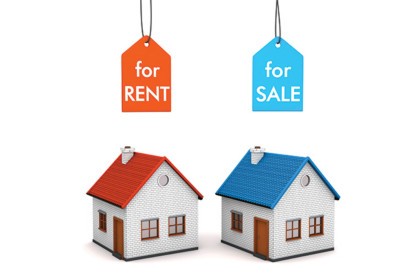
Owning a property is often referred to as the great Australian dream, and it’s widely seen as a sign of success, a path to a better life.
It’s also a very hot topic. For every three properties in Australia, one is owned outright and doesn’t have a mortgage, another is being rented and the third property is being paid off with a mortgage.
For many years, the pattern has been for renters to buy a home after saving that elusive deposit, but this is changing, particularly for those living in capital cities along the eastern seaboard. With prices rising at unprecedented rates, renters are being left with a conundrum: do they take their first step on the ladder or stay on the ground and keep renting?
Careful planning and discipline are the keys to making the right choice, and being aware of the advantages and disadvantages of both buying and renting will help you make the right decision. I asked property expert Nicholas McEvoy, director of BresicWhitney, to identify the pros and cons, highlight the differences and help set you in the right direction.
Rent
Pros:
- Try before you buy
This lets you experience an area and determine if it’s the right one without incurring major costs.
- Financial freedom
You’re not tied down by a mortgage, rates and costs.
- Chance to diversify
Just because you rent doesn’t mean you can’t invest, whether in property, shares or something else.
- Live in a hot suburb
Rent is often significantly lower than the equivalent mortgage, particularly in the prestige market.
Cons:
- Settling for near enough
The fast-paced rental market means people often settle for a housing option they can live with but don’t necessarily love.
- Annual increases
Rental prices are constantly rising in the current market, which leaves renters in the vulnerable position of receiving annual increases.
- Uncertain living arrangements
The owner could want the property back at any time after an expired lease, which can leave the tenants scrambling to find another property in a short period of time.
Buy
Pros:
- Wealth creation
As the market grows or your financial situation changes, it gives you the chance to borrow against a home’s value and invest elsewhere to build wealth.
- Making it yours
It allows you to renovate to your taste, which can add value and pay dividends when you sell it.
- Cheaper than rent in certain areas
Low mortgage rates mean some parts of the market offer value in buying, and may be close to rent costs.
Cons:
- All your eggs in one basket
It’s likely to be the largest asset you’ll ever own, and a lack of diversifying into other assets could be risky.
- Purchasing costs
Stamp duty, buyer’s agents, legal fees and removalist costs all add up.
- Months of searching
Due to the lack of stock and the high demand, it can take a long time to secure a property. Expect to spend every Saturday looking and possibly end up compromising on the area.
- Potential money pit
Maintenance is an added liability, and can be on top of strata, rates, insurances and mortgage repayments.
Source: bodyandSoul
 We are sharing information for knowledge. Presented by. SocialDiary.Net
We are sharing information for knowledge. Presented by. SocialDiary.Net



